Some hotels in Iceland have a special button that will wake you up if the northern lights appear in the sky.
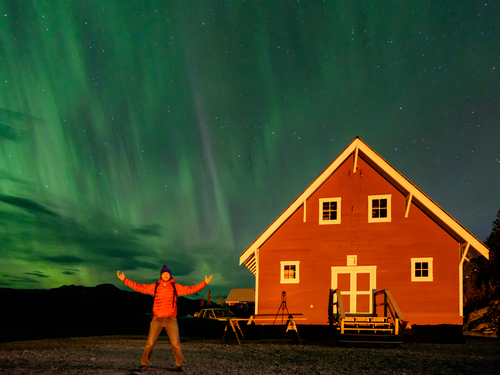
In a world that moves fast and rarely pauses, the idea of being jolted awake in the middle of the night might seem more like an inconvenience than a gift. But in certain hotels across Iceland, guests ask to be woken up—not by alarm clocks or urgent texts, but by a quiet call from nature herself. These hotels offer a rare service: a button you can press that says, “Wake me if the northern lights appear.”
At first glance, it might seem like a clever tourism perk. But behind it lies something much deeper—a reflection on how we live, what we prioritize, and whether we’re truly awake to the moments that matter. The northern lights are unpredictable, fleeting, and entirely outside of human control. You can’t buy them, schedule them, or demand they appear. All you can do is stay ready. Stay open. Stay willing to be stirred from comfort for a glimpse of the extraordinary.
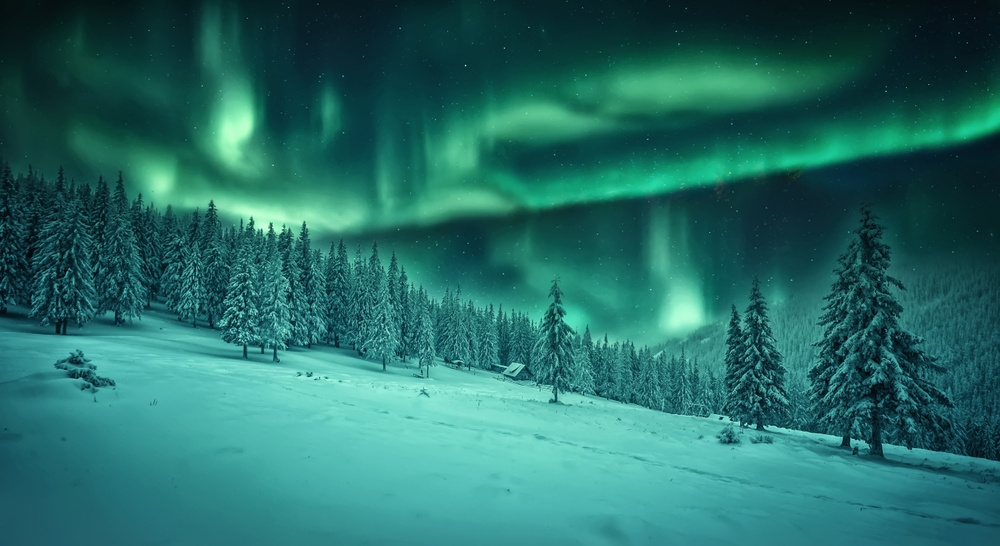
The Magic of Being Awakened by Wonder
Imagine this: you’re in a deep sleep in a cozy hotel room nestled in the remote wilderness of Iceland. The world outside is cloaked in darkness and silence. Then, your phone rings—not with urgency, but with invitation. An automated voice gently nudges you: “The northern lights are visible.” You leap out of bed, throw on a coat, and step outside into the crisp night air. Above you, green and violet ribbons shimmer across the sky, painting the darkness with celestial color.
This experience, offered by hotels like Hotel Rangá and Hotel Húsafell in Iceland, isn’t just a quirky tourist perk. It’s a modern gesture of awe—a way of ensuring that no guest sleeps through the rare chance to witness the aurora borealis. At Hotel Rangá, a simple “Aurora Wake-Up” button on the room phone adds your number to a call list. If the night guard spots auroral activity, you’ll get a call—sometimes followed by a knock if you don’t answer. At Húsafell, guests sign up at reception for a personal wake-up call. It’s a blend of old-world hospitality and new-age wonder chasing.
The significance of this goes beyond just seeing the lights. It’s a reminder that sometimes, the most breathtaking experiences aren’t scheduled. They show up unexpectedly. And in a world where most of us live on autopilot—calendars full, routines set—these hotels offer a rare invitation: stay open to wonder. Even in sleep, stay ready to be awakened.
And it’s not just about luck. These hotels are strategically placed in darkEuropeans Were Mostly Dark-Skinned Until Roman Times, Ancient DNA Suggests, remote areas where light pollution is minimal, giving guests the best possible chance of witnessing this natural phenomenon. They even use tools like “Iceland at Night” and other aurora prediction apps to time alerts. Still, even with preparation, the lights are unpredictable. Sometimes they appear for minutes, sometimes hours. Sometimes you’ll need a camera to see them clearly when solar activity is low. Other times, your naked eye will catch the magic directly.
This unpredictability is part of the charm. Because unlike curated entertainment or man-made attractions, the aurora doesn’t wait for your convenience. It demands your presence, your openness, your willingness to be interrupted—and that’s what makes it unforgettable.
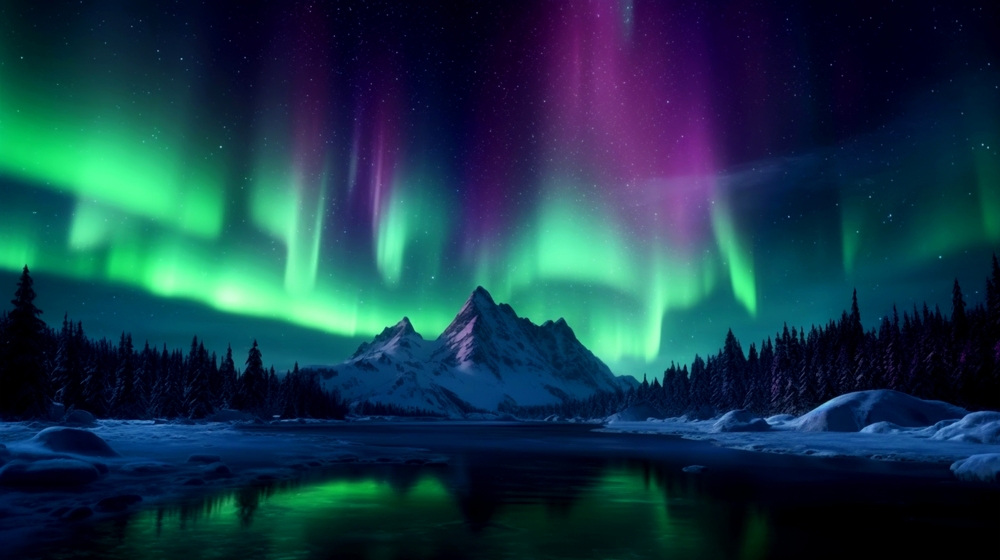
The Art of Preparedness in a World of Uncertainty
What makes the northern lights wake-up call so powerful isn’t just the spectacle itself—it’s what it teaches us about preparation and presence in a world that doesn’t always give second chances. At hotels like Rangá and Húsafell, travelers press a small button on their room phone or sign a sheet at the front desk, not knowing if anything will happen that night. They go to sleep not expecting, but hoping. And yet, they’ve taken a simple, quiet action to say: “I want to be awake if something beautiful happens.” That choice is more than logistical—it’s symbolic. It’s a humble declaration of readiness, a willingness to be interrupted by wonder.
This small ritual echoes a deeper truth about life. We can’t predict when the extraordinary will appear—when the timing will be right, when the clouds will part—but we can choose to stay available to it. The hotel staff do the same. They use tools like aurora forecasts and live sky monitoring, but they admit that even the best preparation has limits. “We never know for how long they are going to be visible,” says Eyrún Aníta Gylfadóttir of Hotel Rangá. “Sometimes it’s a matter of seconds, sometimes minutes, sometimes hours.” That uncertainty doesn’t stop them from trying. They make the calls, knock on doors, and trust that even a glimpse is worth the effort.
That’s a lesson we all need. In our own lives, we often cling to outcomes—we want certainty, guarantees, predictable returns. But most meaningful experiences don’t work that way. Love, creativity, healing, purpose—they don’t show up on demand. They show up when there’s space for them. And that space is created by a kind of intentional openness: a readiness without attachment, a discipline of showing up whether or not the lights appear. It’s the kind of posture that transforms how we approach our work, our relationships, and our personal growth—not with force, but with faith.
So maybe the question isn’t whether the aurora will show up. Maybe the real question is: Are you ready if it does? In a noisy world that teaches us to stay busy and distracted, perhaps the deeper wisdom lies in preparing for the unseen, the uncertain, the unplanned. Not because we expect it—but because we choose to believe that wonder is still possible, and that it’s worth waking up for.
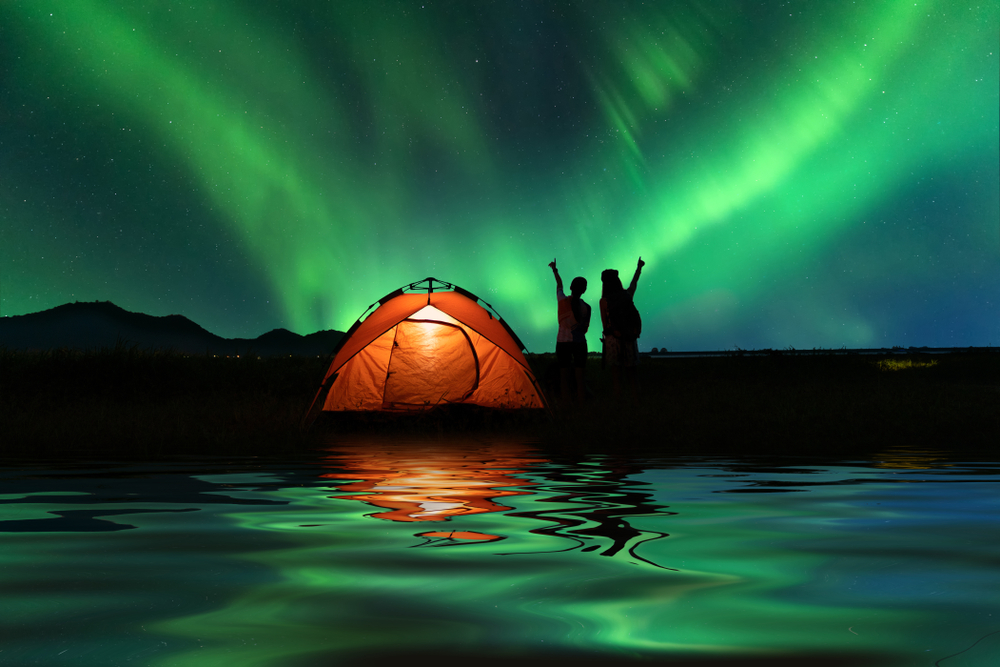
Technology as a Bridge to Nature, Not a Barrier
In a world often overwhelmed by screens and constant notifications, it’s easy to see technology as the enemy of presence. But in the case of the northern lights experience in Iceland, it becomes clear that technology—when used mindfully—can actually deepen our connection to the natural world. At Hotel Rangá, for instance, many guests initially struggle to see the auroras with their naked eyes, especially when solar activity is low. But when they point their phones to the sky and use a slow shutter speed or long exposure, the lights come to life. As Eyrún Aníta Gylfadóttir explains, cameras can detect colors and patterns that our eyes may miss, especially in low-light conditions. This simple use of tech allows people to witness a hidden layer of reality—something beautiful that was always there, just waiting to be revealed.
It’s a striking metaphor. How often do we overlook the beauty around us because we’re not tuned in the right way? How many moments pass us by because we’re not equipped—or willing—to look deeper? In this case, a smartphone becomes more than a gadget. It becomes a lens that helps us notice what would otherwise remain invisible. And rather than distract from the experience, it enhances it, guiding people into stillness, curiosity, and awe. The very tool we often blame for disconnecting us from nature becomes the very thing that brings it closer.
But this isn’t just about capturing a great photo. It’s about rethinking our relationship with technology altogether. When used with intention, tech doesn’t have to replace the moment—it can illuminate it. Apps like “Iceland at Night” help hotel staff predict aurora activity more accurately, improving the chances that guests will catch the lights. GPS and weather data help travelers navigate safely through Iceland’s remote terrain. Even the automated wake-up calls are a form of care—technology delivering a personal touch that says, “You don’t have to miss this.”
The key is intention. Just as the guests step outside with cameras not to scroll, but to witness, we too can choose how we interact with the tools at our fingertips. We can ask: Is this helping me connect—or distracting me from what matters? Are my devices numbing me—or helping me wake up to something greater? In Iceland, technology doesn’t diminish the magic of the aurora. It helps people find it, frame it, and remember it. And maybe that’s the deeper lesson: that when aligned with wonder, even the most modern tools can serve ancient beauty.
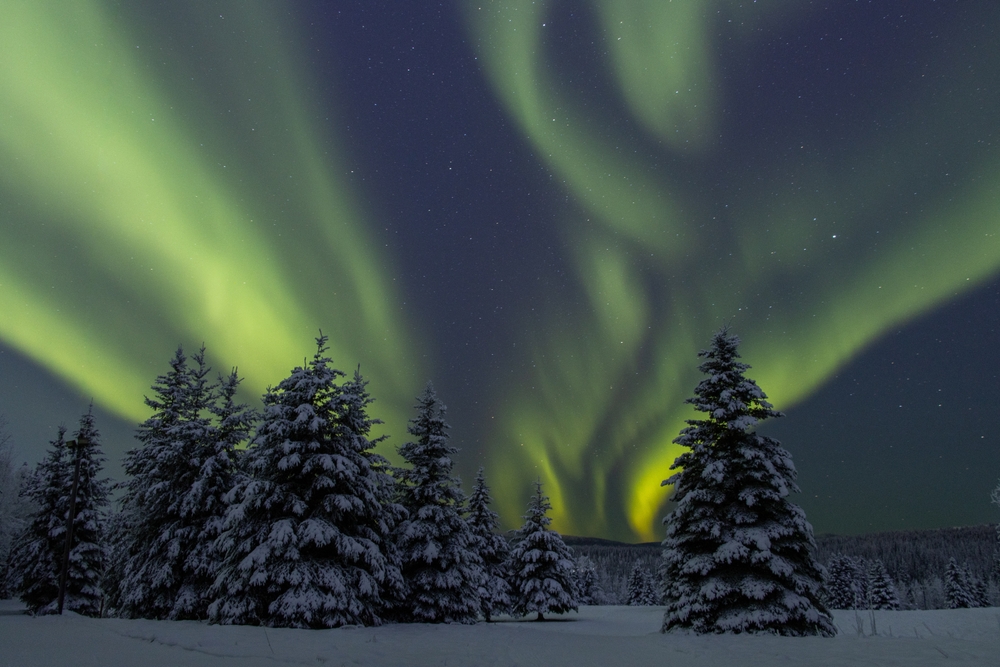
Chasing the Unpredictable — A Lesson in Letting Go
The aurora borealis is one of the most elusive natural wonders on Earth. You can fly across oceans, check every forecast, book the best hotel, and still go home without seeing them. That unpredictability can be frustrating—or it can be freeing. In Iceland, where the lights might appear any time between September and mid-April, even locals rely on forecasts that are only mostly accurate. Clouds shift, solar activity fluctuates, and visibility comes and goes without warning. As the staff at Hotel Húsafell note, even when the conditions seem promising, the lights don’t always show. And sometimes, they surprise you when you’ve stopped looking.
There’s a lesson in that. In life, we often move with a mindset of control—we plan, we optimize, we try to guarantee results. But chasing the northern lights reminds us that not everything beautiful can be planned. Sometimes, the most powerful moments are the ones that happen when we release our grip and accept that we’re not in charge of the timing. This doesn’t mean we stop preparing or caring. It means we find the humility to embrace what we can’t control. The aurora doesn’t perform on schedule. And neither does healing. Or inspiration. Or clarity.
Even for the hotels that specialize in this experience, the staff admit that it’s never certain. The lights might fade before you even get your boots on. Or they might dance longer than expected. It’s all part of the journey. And for many travelers, this uncertainty becomes part of the magic. They gather in the cold, bundled up with strangers, sharing quiet moments under a vast sky—all because of something that might happen. In a time where everything is tracked and timed and rated, that kind of openness to the unknown feels rare—and sacred.
So what if we approached other parts of life the same way? What if instead of demanding outcomes, we stayed curious? What if we stopped chasing certainty and started creating space—for insight, for connection, for beauty to find us when the conditions are right? The aurora won’t wait for your agenda. It doesn’t care about your schedule. But it will show up—brilliant and wild—if you’re willing to step into the dark and let go of needing to know.
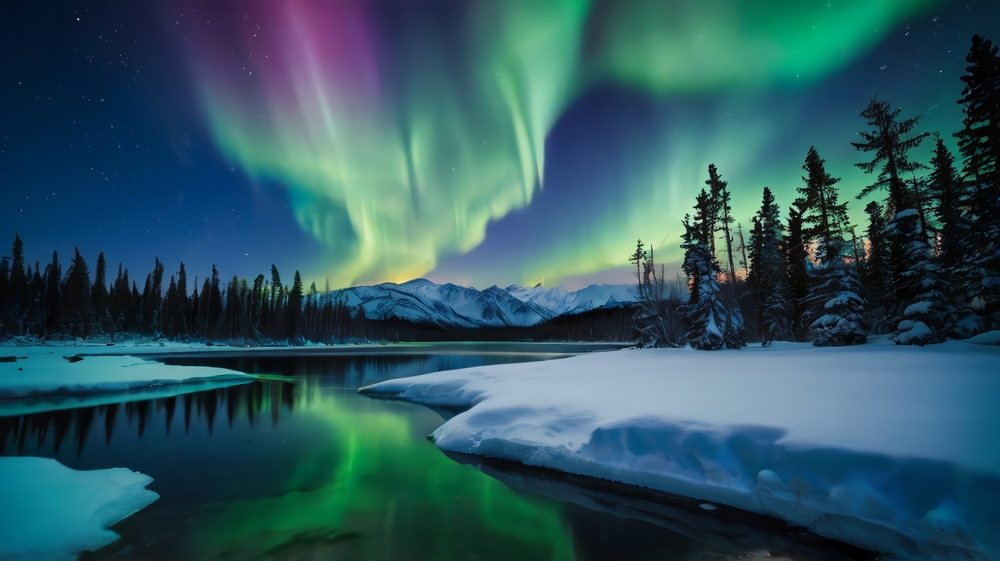
Wake-Up Calls That Go Beyond the Phone
The northern lights wake-up button may seem like a simple hotel feature, but in truth, it’s something deeper—a metaphor, a mirror, maybe even a message. In pressing that button, guests are doing more than signing up for a late-night call. They’re saying: I want to be present for the rare. I’m willing to be interrupted for something beautiful. I don’t want to sleep through the magic.
That’s a mindset we often forget in our daily lives. We sleepwalk through routines, drown in distractions, and sometimes miss what matters most—not because it isn’t there, but because we weren’t awake for it. We don’t hear the subtle call. We’re too busy. Too tired. Too focused on what’s next. But what if there are auroras—moments of light, clarity, or connection—trying to reach us every day? What if life is constantly offering us wake-up calls, just in different forms?
The truth is, we all need wake-up buttons—not just for nature’s wonders, but for our own. A quiet sunrise that begs to be noticed. A child’s question that carries more wisdom than we expect. A moment of silence that makes room for self-reflection. These aren’t always as vivid as green lights in the sky, but they’re no less meaningful. And like the aurora, they won’t always wait for when it’s convenient. You have to be ready. You have to be willing to stop, to listen, to go outside into the cold of uncertainty and look up.
So here’s the invitation: press your own wake-up button. Not just in Iceland, but in your everyday life. Choose presence over autopilot. Stay open to the unpredictable. And when life rings—when it quietly asks you to step outside your comfort, your plan, your sleep—don’t ignore it. Put on your coat. Step into the night. Look up. You never know what brilliance is waiting just beyond the clouds.
Loading...

